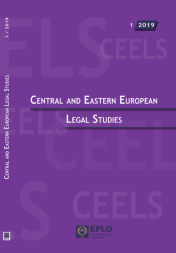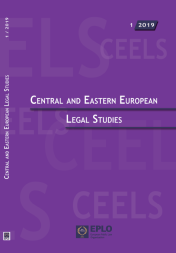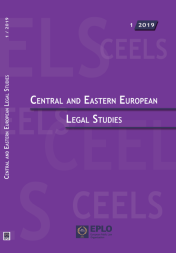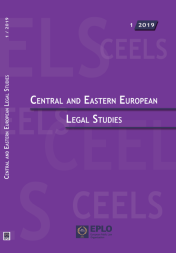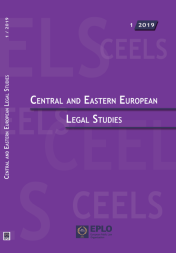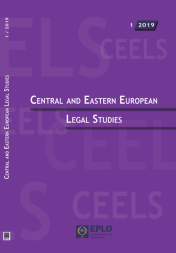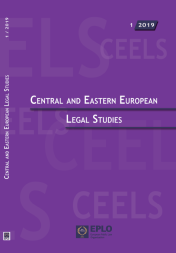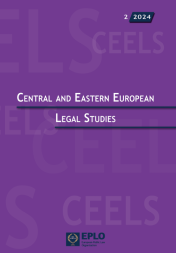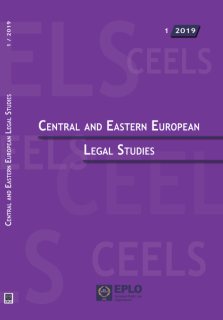
CENTRAL AND EASTERN EUROPEAN LEGAL STUDIES 1/2019
Seven articles coming from Azerbaijan, Greece, Slovakia, Turkey, Poland and Lithuania are included in the first issue of the year 2019 of the Central and Eastern European Legal Studies.
The first article in this issue gives an overview of the correlation between access to justice and UN Sustainable Developments Goals 2030, through the example of Azerbaijan. It highlights the legal basis, the ongoing reforms in the judicial-legal field as well as the practical measures aimed at increasing the effectiveness of justice. After discussing anti-corruption actions and the ASAN service, it concludes by pointing out the high international assessment of the judicial reforms in the country. The following article examines in detail the transnational administrative act as part of the European Union legal framework. The third article attempts to analyze the quality and effectiveness of the constitutional and legal basis of the structure and work of the public administration in Slovakia in terms of the rights guaranteed by the Charter of Fundamental Rights and Freedoms and by the Constitution of the Slovak Republic in the context of procedural principles recommended by the Committee of Ministers of the Council of Europe. The fourth article included in this issue emphasizes the effects on the constitutional state, of the reforms carried out in domestic law from the Helsinki Summit until today during the membership process of Turkey to the EU. The fifth article focuses, by adopting a “challenge and response” structure, on the way the EU tackles the challenges it faces as a result of the growing presence of China, Russia, Turkey and the Gulf States in the Western Balkans. The sixth article of this issue is a comparative law study of the freedom of contract in the public sector from the point of view of the Polish and German law, which in many aspects are similar to each other by indicating, however, some important differences. Last but not least, the seventh article deals with the concept of State (governmental) debt as part of finance law in the Republic of Lithuania, where the main legal instrument of State debt is Government’s securities, which the Ministry of Finance uses as well as borrowing from international financial institutions by signing loan agreements.
Summary
T. Musayev, Ensuring Access to Justice Serves Sustainable Development [IN ENGLISH]
B. Cepek, Procedural Principles pursuant to the Resolution of the Ministers’ Committee [IN SLOVAK]
T. Yıldırım Mat / İ. Ermağan, Impact of Turkey’s Membership Process to the European Union on the Legal System [IN ENGLISH]
B. Sudavičius, Borrowing on Behalf of the State in the Republic of Lithuania [IN LITHUANIAN]















